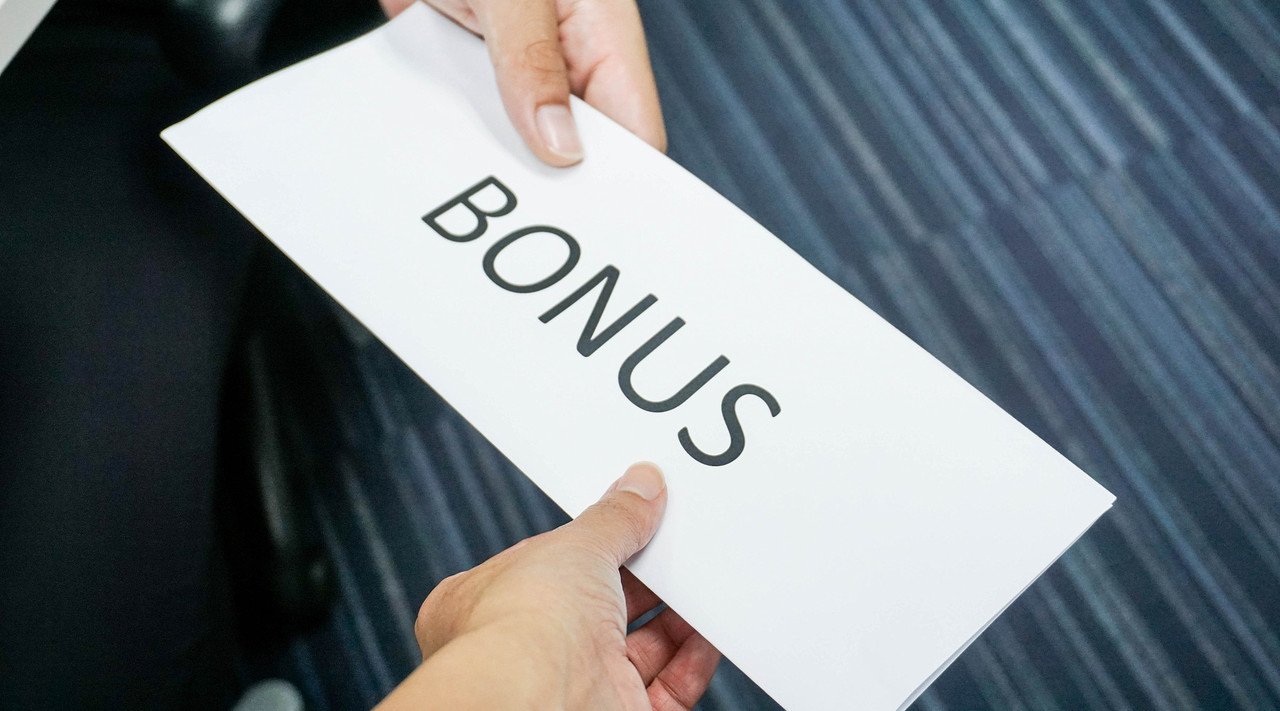
Getting the offer after nailing the interview is a major victory. If you’ve chosen to take the job, you should do so quickly and professionally.
Accepting a job offer is done in a few ways—how the offer is delivered to you, whether you’re willing to negotiate any conditions, and what you should write in your acceptance letter.

Advanced Guide: How Job Offers Are Made and How to Respond
When you’ve successfully navigated the interview process and received an offer, how you respond is critical. The response can vary depending on whether the offer is verbal or written, and the timing of the offer itself plays a significant role in how you should approach the situation. Offers can be extended immediately after an interview, or there may be a gap between the interview and offer date. Understanding the differences in these scenarios will help you respond in the most professional and effective way.
In this guide, we will explore the various aspects of receiving a job offer, how to respond to both verbal and written offers, and why sending a written acceptance letter is essential for setting the stage for a successful professional relationship.
Types of Job Offers

Verbal Offers
Verbal offers are typically made over the phone or in person, where the employer verbally communicates the terms of the job. Sometimes, a verbal offer is made on the spot, especially if the employer is highly impressed by your performance during the interview. Other times, there may be a gap of a day, week, or more between the interview and the offer.
Written Offers
A written offer is more formal and typically comes after a verbal offer, confirming the terms of employment in detail. It may come via email, letter, or an official job offer document outlining the job title, salary, benefits, start date, and other relevant details.
How to Respond to a Verbal Offer

Immediate Response
If you receive a verbal offer during an interview or shortly afterward, you can either accept the offer on the spot or request time to consider it. If you’re unsure, it’s completely acceptable to thank the employer and ask for time to consider the offer. A response like, “Thank you for the offer. I’m very excited about the opportunity and would like to take a day or two to review the details before I provide my final answer” is a professional way to handle the situation.
Negotiating Terms

Verbal offers also present an opportunity for negotiation, especially if there are aspects of the offer that you’d like to change, such as the salary, job title, or start date. Be sure to raise these points in a polite, professional manner, and be ready to justify your requests.
Requesting a Written Offer

Even if you verbally accept the job, it’s essential that you request a written offer for documentation purposes. This helps ensure that both you and the employer are on the same page regarding the terms of the agreement. Be clear in your conversation that you look forward to receiving a formal written offer to review the specifics.
Follow-Up with Written Acknowledgement

After accepting a verbal offer, it’s courteous to follow up with a brief written acknowledgment of your acceptance. This can be in the form of an email or printed letter and should confirm your enthusiasm for the position and express appreciation for the opportunity.
How to Respond to a Written Offer

Immediate Response
Once you receive a written offer, it’s advisable to respond promptly, ideally within 48 hours. Waiting too long may signal a lack of interest or commitment. If you’re ready to accept, you can do so immediately by sending a formal acceptance letter.
Negotiating Terms
If you want to negotiate any part of the offer—such as the salary, benefits, or start date—it’s often easier and more professional to do so in writing rather than over the phone. A formal email or letter can help you convey your requests clearly, giving both parties a chance to review the changes before finalizing the agreement.
Why Send a Written Acceptance Letter?

Sending a written acceptance letter, whether the offer was made verbally or in writing, is an important professional gesture. It confirms your commitment to the job and solidifies the terms of the agreement. A written acceptance letter:
- Reaffirms your decision to join the company.
- Prevents misunderstandings by documenting key terms like salary, benefits, and start date.
- Demonstrates professionalism and sets a positive tone for your future relationship with the employer.
How to Write Your Acceptance Letter

Information to Gather Before Writing
Before writing your acceptance letter, ensure you have the following details:
- Company Name
- Hiring Manager’s Name
- Company Address
- Your Contact Information
- Your Start Date
- Salary and Benefits Information
- Any Other Agreed Terms
Most of this information will be included in the offer itself, but make sure to confirm the details and keep them handy when crafting your letter.
Writing the Acceptance Letter

- Subject Line (for emails):
Keep it simple and clear, e.g., “John Smith – Acceptance Letter for Marketing Manager Position.” - Main Letter:
- Express gratitude: Start by thanking the employer for the offer and expressing your enthusiasm about joining the team.
- Verify the terms: Confirm the key details of the offer, such as the job title, start date, salary, benefits, working hours, and any other important conditions.
- Highlight your fit: Reiterate your excitement for the role and briefly mention why you are excited to contribute your skills to the company.
- Closing:
End with a professional closing, such as “Yours sincerely,” and your name (sign it if printed). If emailing, you may choose to use a digital signature or simply type your name.
Sample Acceptance Letter

[Your Name]
[Your Address]
[City, Zip Code]
[Date]
[Hiring Manager’s Name]
[Company Name]
[Street Address]
[City, Zip Code]
Dear [Mr./Ms. Last Name],
I am pleased to formally accept the offer for the [Job Title] position at [Company Name]. Thank you for this exciting opportunity.
As agreed, my starting salary will be [Salary] per [year/hour], and I will work [X] hours per week. I understand that I will receive [X] days of annual leave and the standard company benefits package. I also acknowledge the dress code is [corporate/smart casual], and I will dress accordingly.
I am excited to bring my experience in [relevant field or skill] to the team and look forward to starting on [Start Date]. Thank you again for this opportunity. I am eager to contribute to [Company Name]’s success and grow within the company.
Yours sincerely,
[Your Name]
Additional Tips for Success

- Font: Use a clean, professional font like Arial or Helvetica for easy readability.
- Style: Keep the letter brief and to the point—avoid unnecessary embellishments.
- Tone: Maintain a formal tone throughout the letter. Avoid slang or contractions (e.g., “it’s” should be written as “it is”).
- Length: Keep the letter concise—focus on essential details and professionalism.
- Proofread: Double-check for spelling and grammatical errors. Pay special attention to names, dates, and other factual information.
Last Thoughts
Writing a well-crafted acceptance letter demonstrates professionalism and attention to detail, setting the tone for your future relationship with the employer. Whether responding to a verbal or written offer, ensure that your letter reflects your excitement, commitment, and eagerness to begin your new role. Taking the extra time to get it right guarantees a strong start to your new job.
FAQs for Responding to Job Offers
Why is it important to send a written acceptance letter?
A written acceptance letter formalizes your commitment to the job, prevents misunderstandings, and demonstrates professionalism.
Can I accept a job offer verbally and then follow up with a written acceptance?
Yes, but it’s always best to follow up with a written letter to ensure clarity and documentation of all agreed terms.
How soon should I respond to a written job offer?
It’s advisable to respond within 48 hours to show your interest and commitment. Prolonging the decision too long can make the employer question your enthusiasm.
How do I negotiate salary or benefits after receiving a job offer?
Negotiation is best done in writing. Be polite and professional, and justify your requests with facts or industry standards if needed.
What if I’m unsure about a job offer?
It’s okay to ask for more time to consider the offer. Politely thank the employer and request a few days to review the offer before making a final decision.
How should I decline a job offer politely?
When declining an offer, express gratitude for the opportunity and explain that after careful consideration, you’ve decided to pursue another opportunity. Keep it brief and courteous.
Conclusion
Responding to a job offer with professionalism and clarity is a critical step in securing your next role. Whether you receive a verbal or written offer, it’s important to express gratitude, confirm key terms, and, if necessary, negotiate aspects of the offer that matter most to you. A well-crafted acceptance letter solidifies your commitment and sets the stage for a positive, professional relationship with your new employer.
By promptly and thoughtfully responding to the offer—whether you’re accepting, negotiating, or declining—you demonstrate that you are not only skilled but also considerate and detail-oriented. Taking the time to ensure that all terms are clear and that your enthusiasm is evident will leave a lasting impression and mark the beginning of a successful career path. Your response is your first opportunity to showcase your professionalism, so make it count!






